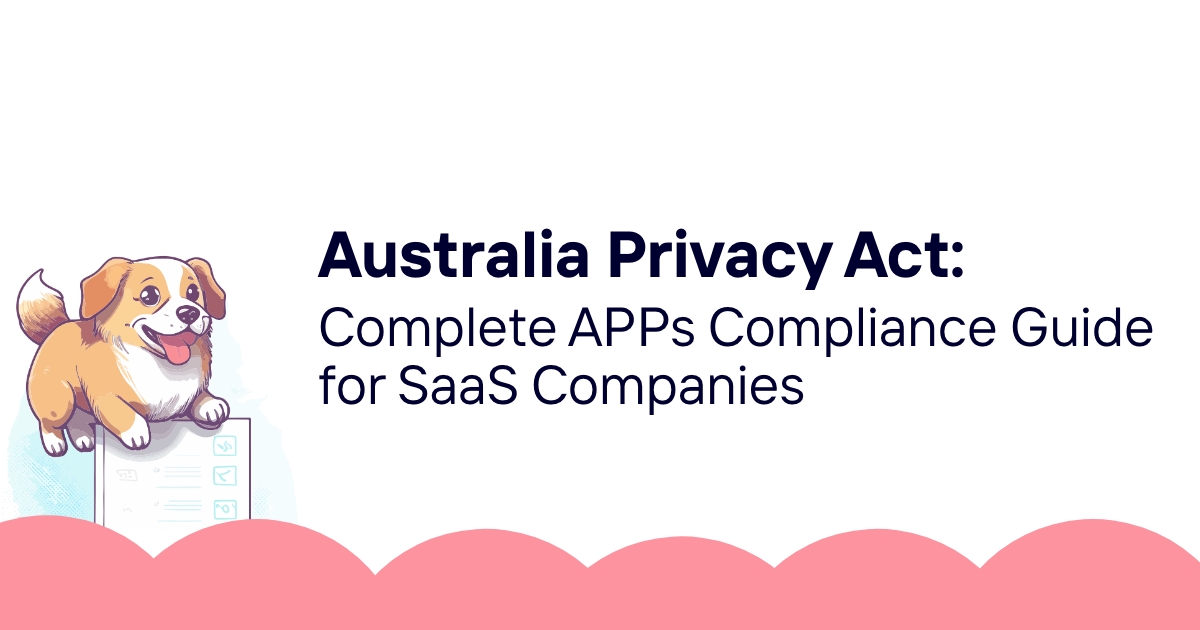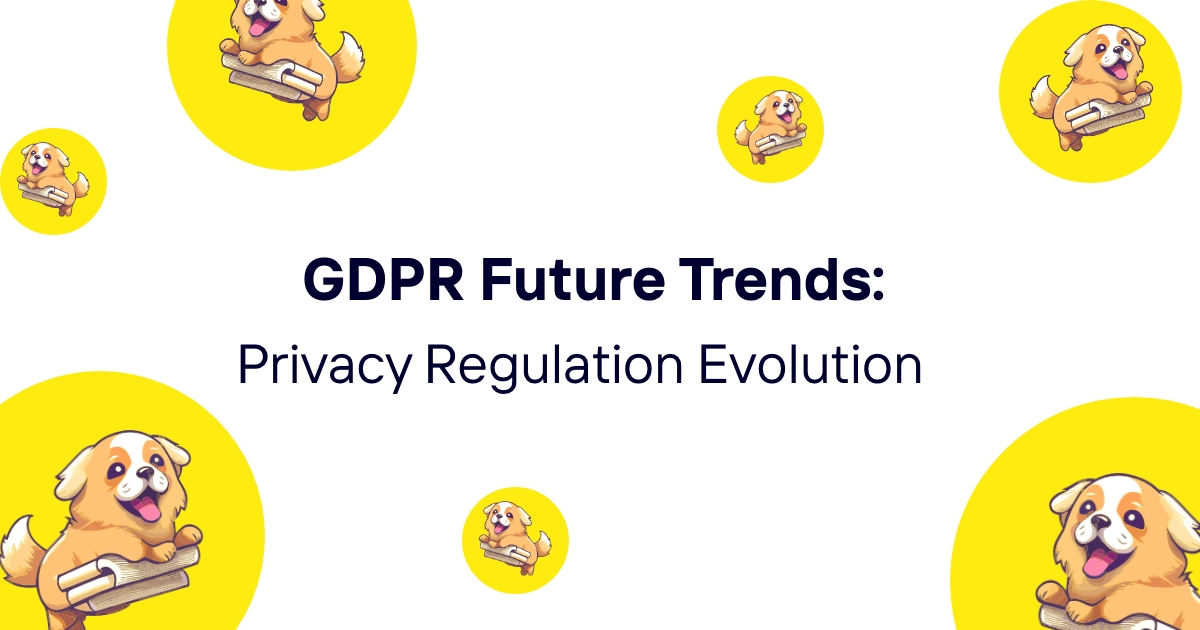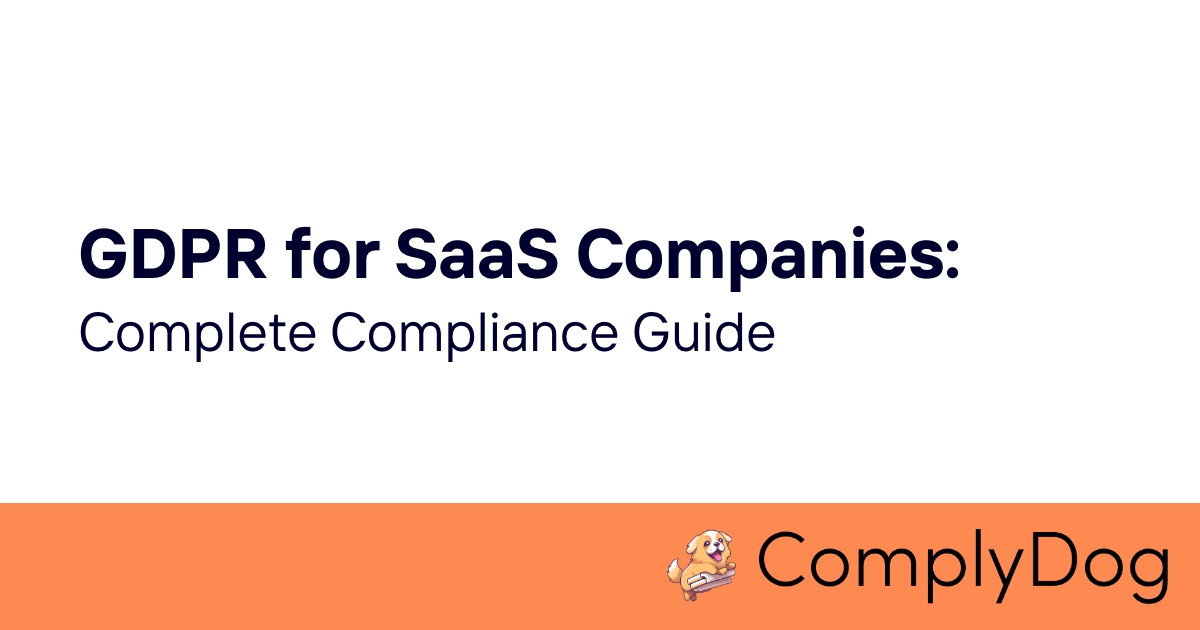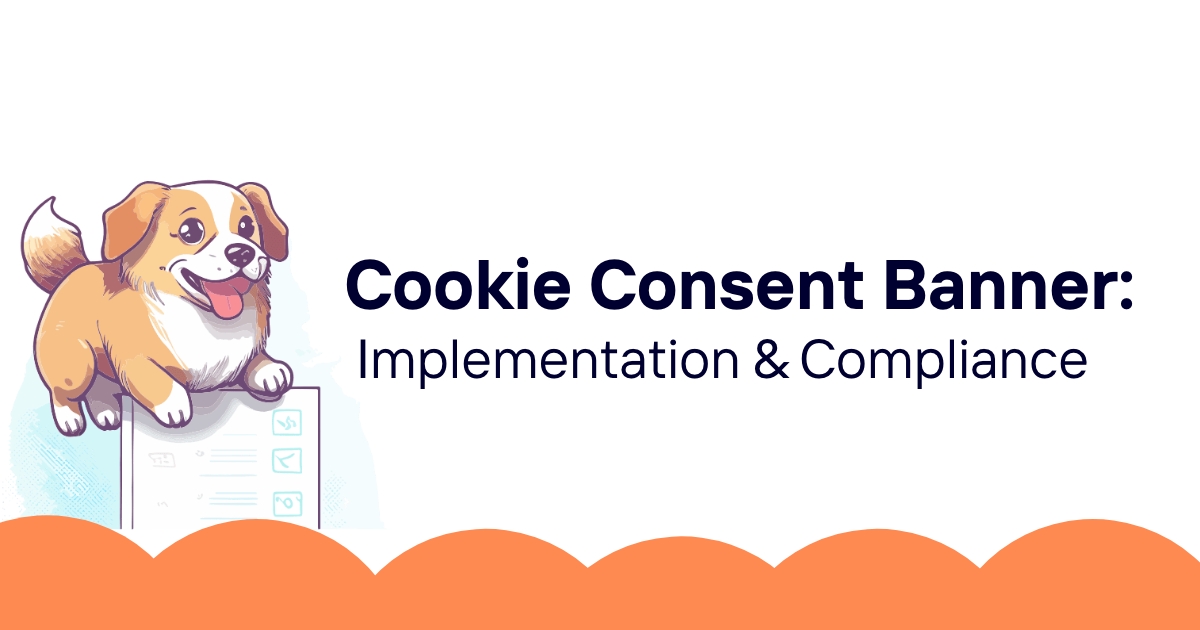Australia's Privacy Act creates unique compliance challenges for SaaS companies that can't be solved by simply adapting GDPR or other international privacy frameworks. The Australian Privacy Principles (APPs) combine commonwealth privacy law with practical business considerations that reflect Australia's position between European privacy standards and American business pragmatism.
The Privacy Act applies to SaaS companies with annual turnover over $3 million or those handling health information, credit information, or providing services to Australian government agencies. For most international SaaS platforms, the turnover threshold means Australian privacy compliance becomes mandatory as businesses grow.
Australian privacy law is evolving rapidly with the Privacy Legislation Amendment (Enforcement and Other Measures) Act 2022 introducing civil penalties and the ongoing Privacy Act Review considering major reforms that could bring Australian law closer to GDPR standards.
SaaS companies that proactively implement APPs compliance gain significant advantages in the Asia-Pacific market. Australia serves as a gateway to the region, and strong Australian privacy compliance demonstrates commitment to international privacy standards that supports expansion across APAC markets.
Companies like ComplyDog help SaaS platforms navigate Australian privacy requirements through comprehensive compliance management that addresses APPs alongside other international privacy frameworks.
Australian Privacy Principles for SaaS Companies
The thirteen Australian Privacy Principles create comprehensive privacy obligations for SaaS companies that must be implemented through policies, procedures, and technical controls tailored to software platform operations.
The Thirteen APPs Overview:
- APP 1 - Open and transparent management of personal information
- APP 2 - Anonymity and pseudonymity options where practicable
- APP 3 - Collection of solicited personal information
- APP 4 - Dealing with unsolicited personal information
- APP 5 - Notification of collection of personal information
- APP 6 - Use or disclosure of personal information
- APP 7 - Direct marketing communications
- APP 8 - Cross-border disclosure of personal information
- APP 9 - Adoption, use, or disclosure of government related identifiers
- APP 10 - Quality of personal information
- APP 11 - Security of personal information
- APP 12 - Access to personal information
- APP 13 - Correction of personal information
Each APP creates specific obligations that SaaS companies must address through platform design, operational procedures, and customer communication strategies.
SaaS-Specific APP Applications:
SaaS platforms face particular challenges implementing APPs because of their automated nature, multi-tenant architecture, and complex data flows that don't always fit traditional privacy law concepts.
APP 2's anonymity requirements can be challenging for SaaS platforms that depend on user accounts and personalization. However, platforms should provide anonymity options where technically feasible and business appropriate.
APP 5's collection notification requirements must account for both direct user data collection and indirect collection through platform analytics, integrations, and automated systems that gather information during platform use.
Personal Information Definition in SaaS Context:
The Privacy Act defines personal information as information or opinion about an identified or reasonably identifiable individual. This includes user accounts, usage analytics, IP addresses, and behavioral data collected by SaaS platforms.
SaaS analytics and telemetry data often qualify as personal information under Australian law, requiring APPs compliance even when the information doesn't include obvious identifiers like names or email addresses.
Small Business Exemption Considerations:
The Privacy Act's small business exemption applies to organizations with annual turnover under $3 million, but SaaS companies often exceed this threshold quickly or handle information that removes the exemption.
Monitor business growth and information handling to ensure compliance obligations are recognized when the small business exemption no longer applies or when handling exempt information types.
For insights on managing business growth and compliance scaling, check out our UK data protection guide which addresses similar regulatory threshold challenges.
Privacy Act Requirements for Software Platforms
Software platforms face specific Privacy Act obligations that require understanding how traditional privacy principles apply to modern SaaS architectures and business models.
Platform Design and Privacy by Design:
While the Privacy Act doesn't explicitly require privacy by design, APP 1's accountability requirements and APP 11's security obligations effectively require building privacy protection into SaaS platform architecture.
Implement privacy considerations from the initial platform design stage rather than retrofitting compliance features. This includes data minimization in data collection, purpose limitation in processing design, and user control mechanisms in platform interfaces.
Multi-Tenant Data Protection:
SaaS platforms serving multiple customers must ensure APP compliance for each tenant while maintaining efficient shared infrastructure and operations.
Design multi-tenant architectures with appropriate data isolation, access controls, and privacy boundaries that prevent cross-tenant data exposure while supporting platform efficiency and functionality.
User Account and Profile Management:
SaaS user accounts and profiles involve extensive personal information collection and processing that must comply with multiple APPs including collection notification, use limitation, and security requirements.
Implement user account systems with clear privacy controls, granular consent mechanisms, and transparent information practices that give users meaningful choice about their personal information handling.
Integration and Third-Party Data Sharing:
SaaS platforms often integrate with third-party services that process customer personal information, creating APP 8 cross-border disclosure obligations and shared responsibility for privacy compliance.
Audit third-party integrations to ensure appropriate privacy protection and user notification for data sharing arrangements that might not be obvious to platform users.
Australian Customer Data Rights in SaaS
Australian individuals have specific rights under the APPs that SaaS companies must support through appropriate systems and procedures while balancing privacy protection with platform functionality.
Access Rights Implementation (APP 12):
APP 12 gives individuals rights to access their personal information held by organizations. SaaS platforms must provide mechanisms for customers to request and receive their personal information in useful formats.
Design access systems that can compile comprehensive personal information from across platform components including user accounts, analytics data, support interactions, and integration data while protecting other users' information.
Correction Rights Management (APP 13):
APP 13 requires organizations to correct inaccurate, out-of-date, incomplete, irrelevant, or misleading personal information when requested by individuals or when otherwise aware of issues.
Implement correction mechanisms that can handle both factual errors and disputes about inferred or derived information that platforms generate through analytics and automated processing.
Access and Correction Request Processing:
The Privacy Act requires responding to access and correction requests within reasonable periods, typically 30 days unless exceptional circumstances justify extensions.
Build efficient request processing systems that can handle routine requests automatically while providing escalation procedures for complex situations that require manual review and response.
Fee Structures for Access Requests:
Organizations can charge reasonable fees for access requests, but these fees cannot be excessive or act as barriers to accessing personal information.
Develop fee structures that recover reasonable costs for complex access requests while providing free access for routine requests that can be handled through automated systems.
APPs Implementation for International SaaS
International SaaS companies serving Australian customers must implement APPs compliance while coordinating with other privacy frameworks and managing cross-border operations.
Jurisdictional Scope Determination:
The Privacy Act applies to organizations that collect or hold personal information in Australia or in connection with Australian activities, regardless of where the organization is located.
Evaluate whether your SaaS platform activities trigger Australian Privacy Act obligations based on customer location, data collection methods, and business operations rather than just company location.
Cross-Border Data Handling (APP 8):
APP 8 requires specific steps before disclosing personal information outside Australia, including ensuring overseas recipients will handle information consistently with APPs or obtaining individual consent for disclosure.
Implement cross-border transfer mechanisms that satisfy APP 8 requirements while supporting efficient SaaS operations across multiple jurisdictions and cloud infrastructure regions.
Australian Representative Requirements:
Consider whether international SaaS operations require designating Australian representatives or establishing local contact points for privacy inquiries and regulatory communication.
Evaluate business structure and customer service arrangements to ensure appropriate accessibility for Australian customers and regulatory authorities seeking privacy-related communication.
Coordinated Compliance Strategies:
International SaaS companies often need compliance strategies that address APPs alongside GDPR, CCPA, and other privacy frameworks through coordinated but jurisdiction-specific implementations.
Design compliance architectures that can handle multiple privacy frameworks efficiently while ensuring APPs-specific requirements receive appropriate attention and implementation.
Australian Privacy Commissioner Guidelines for Software
The Office of the Australian Information Commissioner (OAIC) provides specific guidance for software and technology companies that helps interpret APPs requirements for SaaS business models.
OAIC Technology Guidance:
The OAIC has developed guidance on privacy and technology that addresses common SaaS compliance challenges including data analytics, automated decision-making, and cloud computing privacy protection.
Use OAIC guidance to inform SaaS platform design decisions around data collection, user controls, consent management, and privacy-preserving features that demonstrate proactive compliance.
Privacy by Design Guidance:
While not legally mandated, the OAIC promotes privacy by design approaches that align with international best practices and support APPs compliance through proactive privacy protection.
Implement privacy by design principles that exceed minimum APPs requirements while supporting business innovation and customer trust in privacy protection practices.
Data Breach Response Guidelines:
The OAIC provides guidance on data breach response including assessment, notification, and remediation that affects how SaaS companies handle security incidents involving Australian personal information.
Develop data breach response procedures that follow OAIC guidance while coordinating with other jurisdictional requirements for international SaaS operations.
Enforcement Approach and Priorities:
Understanding OAIC enforcement priorities and approaches helps SaaS companies focus compliance efforts on areas that receive regulatory attention and demonstrate genuine privacy protection commitment.
Monitor OAIC enforcement actions, guidance updates, and regulatory priorities to ensure compliance programs address current regulatory focuses while preparing for emerging privacy challenges.
Cross-Border Data Transfer Rules for SaaS
APP 8 creates specific requirements for cross-border personal information disclosure that affect how SaaS companies design global platforms and data processing architectures.
APP 8 Compliance Mechanisms:
APP 8 allows cross-border disclosure through several mechanisms including ensuring overseas recipients will handle information consistently with APPs, obtaining individual consent, or relying on specific exemptions.
Evaluate which APP 8 compliance mechanisms work best for different types of SaaS data transfers while maintaining operational efficiency and customer experience quality.
Contractual Protection Approaches:
SaaS companies often use contractual mechanisms to ensure overseas recipients provide APPs-consistent protection through service agreements, data processing terms, and vendor management procedures.
Develop contract templates and vendor management procedures that ensure overseas data recipients maintain appropriate privacy protection while supporting legitimate SaaS business operations.
Cloud Infrastructure Compliance:
SaaS platforms using cloud infrastructure must ensure APP 8 compliance when personal information is stored or processed outside Australia through appropriate provider agreements and technical safeguards.
Evaluate cloud provider data protection capabilities and geographic locations to ensure appropriate protection for Australian personal information regardless of where processing occurs.
Data Localization Considerations:
While APP 8 doesn't require data localization, some SaaS companies choose Australian data residency approaches that eliminate cross-border transfer concerns while supporting local market preferences.
Consider the costs and benefits of data localization versus cross-border transfer compliance for different types of Australian personal information and business operations.
Australian Privacy Compliance Documentation
APPs compliance requires comprehensive documentation that demonstrates privacy protection commitment while supporting operational efficiency and regulatory accountability.
Privacy Policy Requirements (APP 1):
APP 1 requires clear and up-to-date privacy policies that explain personal information handling practices in language that individuals can understand and use to make informed decisions.
Develop privacy policies that address all APPs requirements while providing practical information that helps Australian customers understand their privacy rights and your protection practices.
Collection Notice Implementation (APP 5):
APP 5 requires providing collection notices when collecting personal information that explain collection purposes, disclosure intentions, and individual rights in clear, accessible language.
Implement collection notice systems that provide required information at appropriate times without creating barriers to platform use or overwhelming users with excessive privacy information.
Privacy Procedure Documentation:
Document operational procedures for handling personal information throughout its lifecycle including collection, use, disclosure, storage, and disposal in ways that demonstrate APPs compliance.
Create practical procedures that staff can follow consistently while maintaining APPs compliance and supporting efficient SaaS operations and customer service.
Training and Awareness Programs:
Implement training programs that ensure staff understand APPs requirements and their responsibilities for handling Australian personal information appropriately during daily operations.
Develop role-specific training that addresses APPs obligations for different staff functions while maintaining practical guidance for operational efficiency and customer service quality.
Ready to succeed in the Australian market? Use ComplyDog and demonstrate your commitment to Australian privacy law with a comprehensive compliance portal that addresses APPs requirements while supporting efficient SaaS operations and customer trust.


















